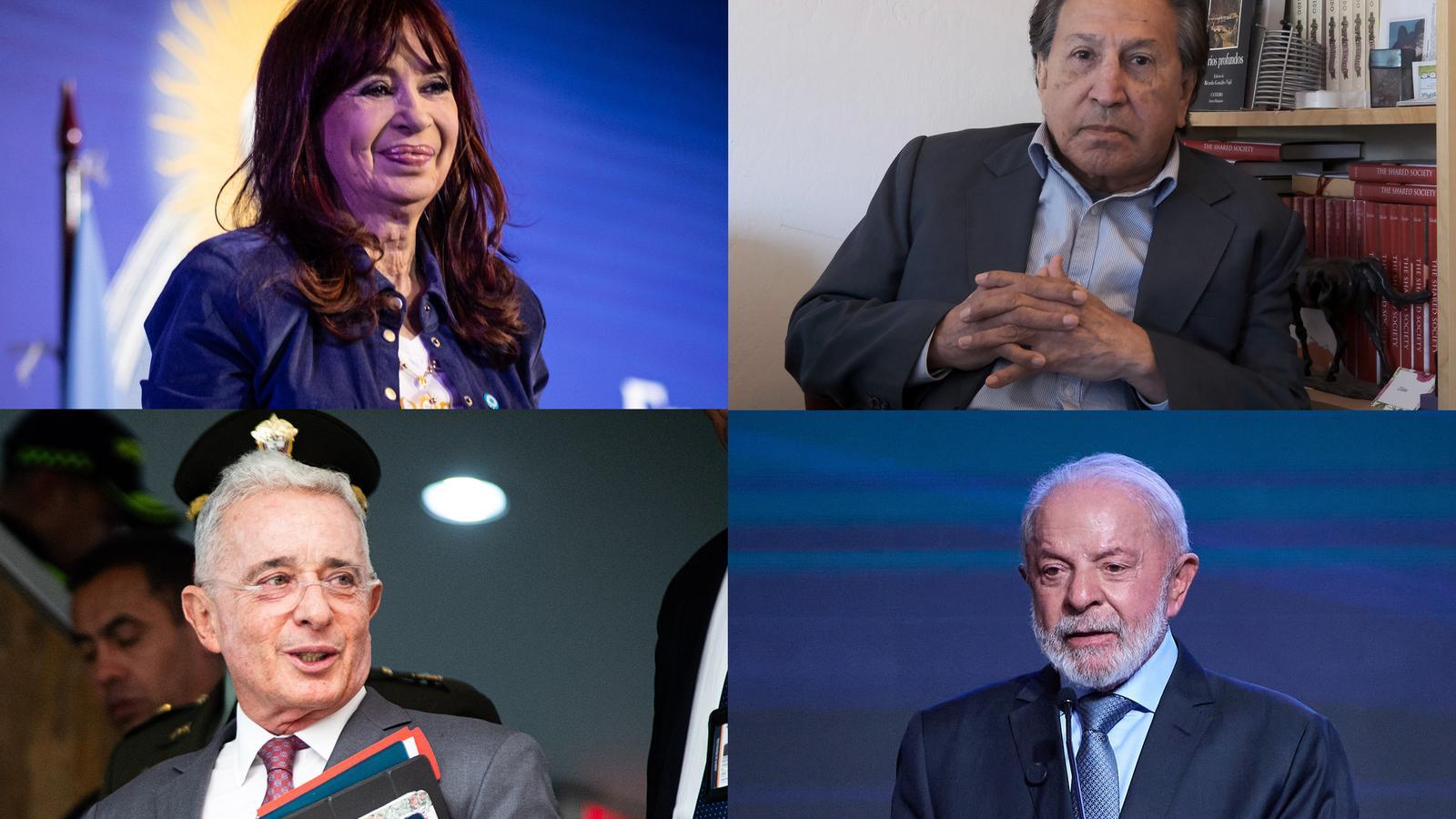Former presidents on trial: a turbulent decade of institutional tension in South America
Up to 14 former heads of state from six countries in the region have been investigated, arrested or convicted.


Sao PaoloJair Bolsonaro, sentenced to 27 years in prison for attempted coup by the Brazilian Supreme Court, This past week, he joined the long list of former South American presidents found guilty by the courts. Among those sentenced are figures of the of his antagonist, Luiz Inácio Lula da Silva (imprisoned between April 2018 and November 2019 for corruption and money laundering), reinstated by the Supreme Court and now in power serving his third term; or Peronist Cristina Fernández de Kirchner (perpetually disqualified from office and sentenced to six years for corruption and serving house arrest in Buenos Aires).
Also on the list are former Peruvian leaders Alejandro Toledo (imprisoned for two sentences for bribery and money laundering totaling 33 years) and Ollanta Humala (serving 15 years in prison for money laundering). The list includes right-wing Álvaro Uribe (sentenced in the first instance in Colombia to 12 years of house arrest for corruption and released on bail) and radical evangelical Jeanine Áñez (imprisoned in Bolivia for attempted coup d'état, corruption, and human rights violations).
Among those under investigation are former Bolivian President Evo Morales (who has an arrest warrant for sexual abuse of a minor and human trafficking, and is free in his country) and three former Peruvian leaders: Pedro Castillo (imprisoned, on trial for having instigated a self-coup and for having received bribes) and Alan García (investigated for corruption and bribery and committed suicide before being arrested in 2019). In Chile, the late Sebastián Piñera was investigated for tax crimes, bribery, and money laundering, and the cases were closed; while in Paraguay, two leaders of the Colorado Party, Horacio Cartes (the country's true strongman and sanctioned by the United States for corruption and terrorist ties) and Mario Abdo Benítez (whom the Prosecutor's Office accuses of having accounts in tax havens), were in the judicial spotlight.
Bolsonaro, the coup plotter sponsored by Trump
Bolsonaro's conviction, unprecedented in Brazilian judicial history, has generated an international outcry. due to Washington's interference. It is a unique case in contemporary South America, because it breaks the common thread of most open proceedings against other former heads of state in the region, centered mainly on alleged corruption scandals.
"What is happening now in Brazil is an exception. They have sentenced Bolsonaro and his most loyal core of collaborators and military personnel for attempting to return to old structures that existed before the restoration of democracy in the country," Barcelona-born Albert Buyé, a political risk consultant based in São Paulo, explains to ARA.
"Bolsonaro should be seen as Trump's battering ram, who is re-enacting the Nixon Doctrine on the continent. In other words, he is advancing the establishment of authoritarian regimes that defend the interests of his administration. And, to achieve this, he has not hesitated to try to overthrow an advanced democracy."
Despite the uniqueness of each former leader, accusations of corruption and abuse of power reveal common patterns. In polarized political environments, such as in Argentina and Brazil, where the far right implodes state structures when in power, the public is left wondering whether these are democratic processes of separation of powers or, instead, a judicialization of politics and a search for revenge regarding the program.
"There has been judicial persecution of former presidents in Argentina, Bolivia, Brazil, and Ecuador, in this case with Vice President Jorge Glas, which responds to a political pattern to ban popular leaders with the possibility of returning to power through electoral means using pseudo-legal arguments," he argued. Cristina Fernández, Evo Morales, and Lula da Silva.
"This same criterion," adds the Argentine political analyst, "was applied in Peru, where the only truly strong and governing institutions are the Central Bank and the armed forces, against Pedro Castillo, who, despite his mistakes and inexperience, represented a popular alternative to an oligarchic power that had been entrenched for years."
"It is undeniable that there have been proven cases of corruption, such as those of Alejandro Toledo and Ollanta Humala in Peru, who were convicted of accepting bribes from the Brazilian construction company Odebrecht on major infrastructure projects," says Buyé, who emphasizes that "beyond more," there is both unveiled and explicit pressure from foreign powers everywhere, distorting the consolidation of democracies in Latin America."
